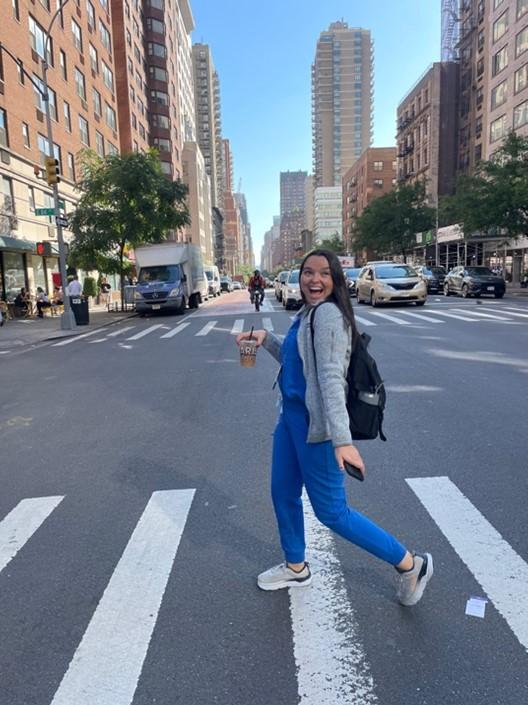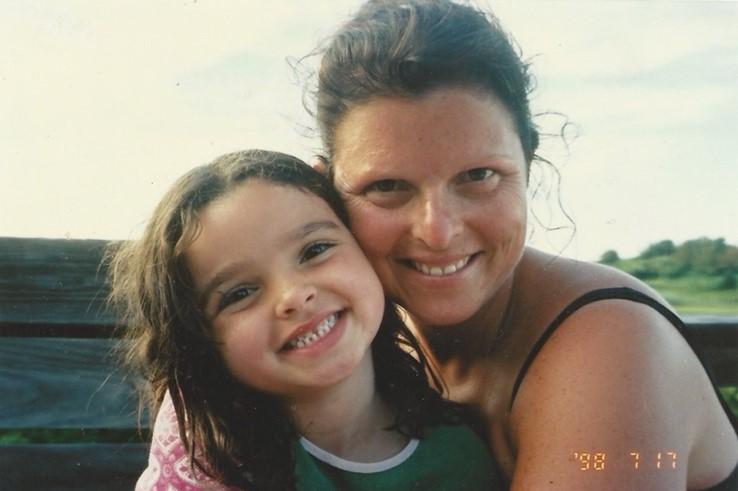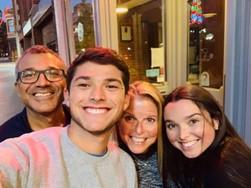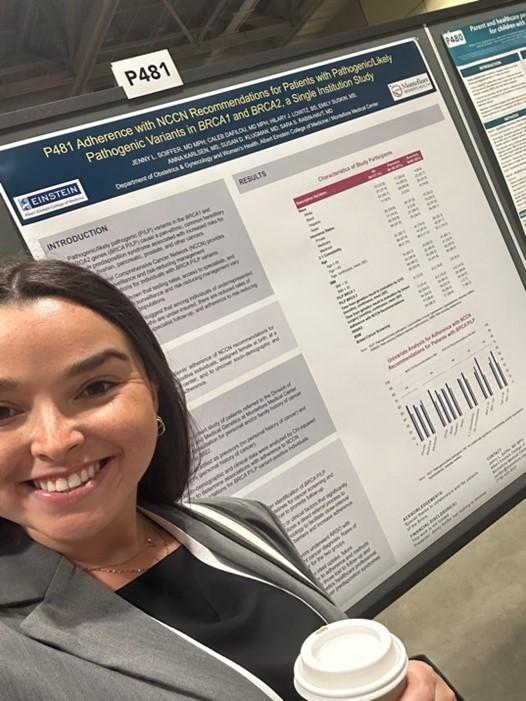
This blog was written by Hilary Lowitz, Basser Young Leadership Council member.
A Coin Toss
My mom, a two-time breast cancer survivor, tested positive for a pathogenic variant in BRCA2 after her second cancer diagnosis in her early 30s. My mom’s OB/GYN, Dr. Marks, supported her throughout her journey with breast cancer, genetic testing, and even helped her start our family despite fertility experts’ bleak outlook. Dr. Marks eventually became my doctor, and I trusted her guidance deeply. She recommended that I undergo genetic testing around 10 years earlier than the age my mom was at the time of her first breast cancer diagnosis.

50/50 – a coin toss: those were the odds that determined my fate. I contemplated the pros and cons, every possible outcome, reaction, question. Would I live like most other women, starting mammograms in my 40s? Or would I begin visiting oncologists and having ultrasounds and MRIs as a young adult? If I chose to have the test and found I was positive, would I be denied life and health insurance, pinned as having a “pre-existing condition,” or face potential discrimination in obtaining employment? Would an abnormal test result provoke excessive anxiety, fear, and overthinking? Would it cause my mother to feel guilt for passing the mutation on to me? Alternatively, if I did possess the mutation, a positive test result may save my life. As a pre-med student, I understood the evidence – more frequent exams and screenings as well as preventative treatments could reduce my risk of developing breast or ovarian cancer or detect any early signs of disease.
Staying Positive After Testing Positive
When Dr. Marks left a voicemail on my cell phone requesting that I come in to discuss the results of the genetic testing, I knew in my gut I that had tested positive for the mutation. Otherwise, I told myself, she would have just given me the good news over the phone. When I sat down in her office and she told me that I was a carrier of a BRCA2 mutation, the first thing I thought of was my mom. I felt guilty, scared, but simultaneously at peace, knowing we were connected in a new way and that I could follow in her footsteps and have her knowledge and experience to guide me. “Knowledge is power,” Dr. Marks told me, and I never forgot this.

Since that summer of 2018, I have been incredibly lucky to have support from my mom, the rest of my family, and my friends throughout each step. BRCA mutations also run through my best friend, Sophie’s, family, and I always call or text with her before and after my screening and imaging appointments. Knowing I have a friend who just gets it is invaluable. This winter, I will be undergoing a prophylactic bilateral mastectomy with reconstruction and I know that I will continue to lean on my people for support. The people around me have consistently shown their pride in my use of this knowledge as true power. I feel empowered taking control of my health and my body, and grateful that I have the knowledge and resources necessary to make informed decisions.

From Patient to Provider
Now, as a fourth-year medical student in New York City, I’ve found that my journey as a BRCA2 mutation carrier has profoundly shaped my life. Early on in med school, I was unsure of what specialty I would pursue within medicine. But when on my OB/GYN rotation, I connected the dots. I loved connecting with and empowering women through their healthcare journeys and found that the providers within women’s health that I encountered over the years have inspired and motivated me to embody such care and compassion in my work. I was fortunate enough to spend a day in the Reproductive Genetics clinic during my rotation, where I worked with genetic counselors to help counsel and support patients with hereditary cancer syndromes. That day led me to finding my research mentors, Drs. Susan Klugman and Sara Rabin-Havt, who provided me the opportunity to help on a research project investigating socio-demographic predictors of adherence to screening and management guidelines for patients with pathogenic BRCA1/2 variants. Presenting our research at the American College of Medical Genetics and Genomics conference in Toronto last spring was a proud moment for me, and I am currently continuing to work on expanding the project.

After having initially been thrown into the world of women’s health as a frightened patient in her 20’s, I am now choosing to be a part of that world as a provider, hoping to advocate for and support women throughout my career. I am currently applying to OB/GYN residency and will hopefully be celebrating Match Day 2025 (fingers crossed) just 6 weeks after my mastectomy!
How Can I Get Involved with the Basser Young Leadership Council?
Learn more about the Young Leadership Council and contact Carolyn Brown or call 215.573.0550 to learn how to become involved with the YLC.
Get BRCA Answers
Think you or someone you love might carry a BRCA mutation? Genetic counseling and testing is recommended for individuals whose family and personal health histories point to an increased chance of a cancer gene mutation. To learn if you may be a candidate for genetic testing, take our BRCA risk factor quiz.
The University of Pennsylvania Health System offers this story for general informational purposes only. Views expressed are those of the author or other attributed individual and do not necessarily represent the official opinion of the related Department(s), University of Pennsylvania Health System (Penn Medicine), or the University of Pennsylvania. Health information is provided for educational purposes and should not be used as a source of personal medical advice.